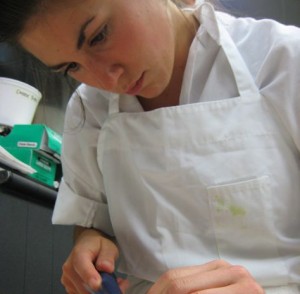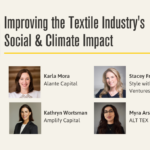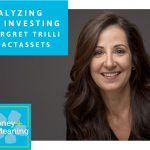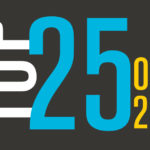 Claire Herminjard of Mindful Meats is this week’s entrepreneur of the week. She gets the nod because of the way she listened to her gut and was able to see that someone she was looking to do a deal with was being deceptive.
Claire Herminjard of Mindful Meats is this week’s entrepreneur of the week. She gets the nod because of the way she listened to her gut and was able to see that someone she was looking to do a deal with was being deceptive.
There are a lot of smart entrepreneurs who have assessed the problem they are tackling, from water to education to food, to mobile access, and come up with a seemingly brilliant plan. There are growing numbers of dedicated, tireless world changers. But entrepreneurs who are able to sniff out a good seeming deal with a hidden sour underside and stop in time are in shorter supply.
I’ve been talking to Claire for a few weeks after an intro from Ari Derfel of Slow Money. She is working on a startup focusing on local, humane slaughter as a key piece of mission infrastructure of the burgeoning local agriculture economy. The lack of local slaughter makes it hard for local producers to raise cattle for their communities. She talks about that problem here on her blog, and I hope she starts blogging more.
Starting in Sonoma County, she is assessing a complex mix of partnerships, green field or turnaround options involving land, existing slaughter facilities, large dairy operations and other pieces of puzzle.
She’d been focusing on a particular part of that puzzle and was closing in on a transaction when something alerted her. The principal had left the room and she was left with the man who’d been brought in by the owner to drive the deal. Something seemed wrong, the vibe was odd, things were said that did not quite fit with the picture she’d been given. She asked more questions and discovered a big piece of bad news about that asset that they had not told her about. She backed carefully, but without breaking relationships, away from the table.
I am purposefully being as vague as possible here. The importance is that she avoided a key trap of the naïve young entrepreneur. It is possible for entrepreneurs of any age to believe so strongly in their vision that they push aside those nagging, hard to pin down feelings that something is not right. You know you will get there, you will overcome, you will not be stopped and you will adapt and you can make it happen. And your eager blindness to all objections makes you not hear the small voices that say something is not right.
In doing a deal, your gut is your guide as much as having your eyes wide open to see potential.
Good deals are always about creating new value together, and as such as uncharted territory. You need to keep your eyes wide open for new value potential as it unfolds, looking for win win opportunities that create new and good things for both sides, listening for what the other person really wants and needs.
If you’ve done your due diligence and the potential is really there, you also need to listen to what your senses are telling you, what your gut says, how the deal feels the closer you get to it. Malcolm Gladwell’s book Blink, the power of thinking without thinking is about how we know a lot of things in ways that are not clear to us, from a variety of visual, visceral and cultural cles that add up to give us more information in more depth than could ever fit on a spread sheet. That’s the kind of knowing that led Claire to probe deeper and save her fledgling enterprise from falling in a nasty hole.
She has also avoided the easy bad lesson some people learn from almost being tricked, of almost falling into a trap; deciding not to risk a partnership again. She is still building her startup with an open mind and defaulting toward trust. That, too is a really good sign of her maturity and approach.
With another startup I am working with, a potential partner has remained on the sidelines because all he can see is what might go wrong in three or five years and can’t really grasp the new value his startup and the one I am helping could create together. As a result, after eight years, that untrusting entrepreneur has not grown his sales past $500,000 despite a viable business model and great initial set of partners and assets. You have to trust to build value together and build a supporting network of stakeholders who have a vested stake in your success. His startup is a sadly missed opportunity; he could be doing something much better and with greater impact.
Claire is not going down his path. She avoided the risk and is responding by realizing she needs some allies, people working in ranching, land trusts and other parts of the system sooner rather than later. She is also exploring ways to link local food with justice, providing cheap meat to schools and poor families, and finding good receptivity on a lot of fronts. So the model is evolving well, too.
She still has a lot of things to work out as she creates her model of low cost slaughter that could fill a crucial gap and spur the growth of local food across the country. But Claire has come through a real trial intact and wiser but not bitter. Eyes open to create new value with a broader range of partners and knowing that listening to your gut when it’s talking to you, telling you something is not right, is a valid warning signal.
That’s not so much a milestone for her business, Mindful Meats, as it is a milestone in her maturity as a social entrepreneur, as a business woman. Sometimes the best deals are the deals you don’t do because something not quite clear just didn’t seem right, despite the obvious evidence.
I avoided a deal three years ago with an urban tomato greenhouse operation in the northeast that seemed to have everything going for it, co-investors I liked, a clear market niche, distribution connections, experienced management. It relied on European technology to keep the greenhouses inflated and heated cheaply. A kind of scary number of moving parts, tech untried in this country. Something said wait, and then, we got lucky. A windstorm blew down the facility, and the low cost cutting edge technology was damaged beyond repair. As many a wise person has said before, I am glad I trusted my gut to wait and even more glad that I was lucky. And then the windstorm answered our questions. I think we were smart, but it was luck that sealed the deal not done.





